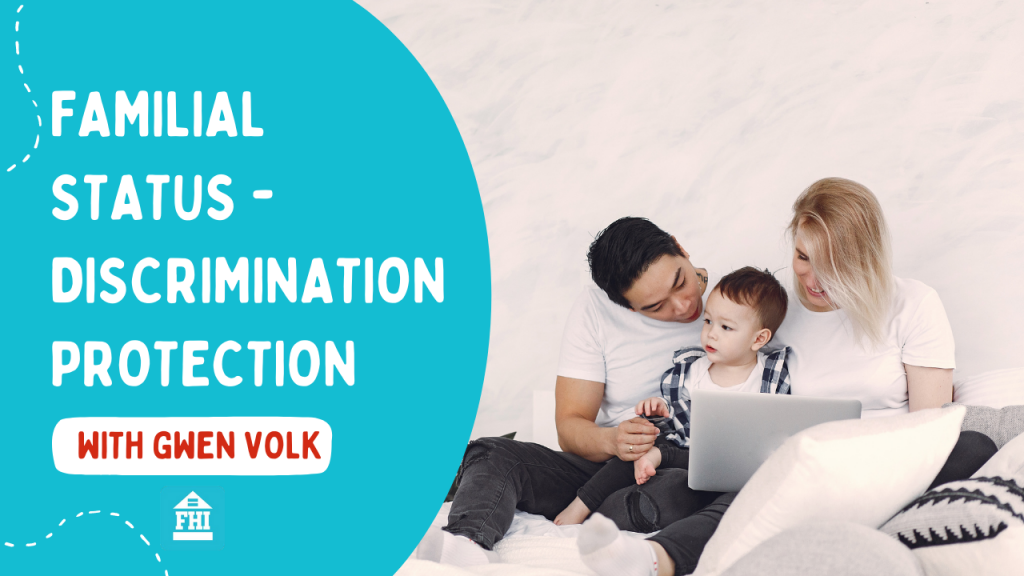Did you know that familial status discrimination was the second most common fair housing complaint in 2021? We are joined by Gwen Volk to break down this sometimes confusing protected category to help you and your property work towards better discrimination protection.

Estimated reading time: 4 minutes
What is familial status, and who does it protect?
It is important to understand what was happening when familial status was added as a protected category under the Fair Housing Act to interpret what it is and who it protects. In 1988 interest rates were very high. People interested in buying a home were looking at rates of 12-14%, making ownership very difficult and driving many younger families into the rental market.
In addition, landlords did not want to rent to families and were actually running ads that stated “no children” or outrightly rejecting applications from families that had children. It became very apparent that familial status needed to become a protected category. It was added and afforded protection to families that had individuals living with them under the age of 18. These could be biological, foster, or adopted children. The class also included and protected pregnant women.
Are there exceptions where familial status doesn’t apply?
There is a very confusing exception, primarily if you work in the affordable housing sector. This exception does not apply to deeply subsidized housing or HUD properties. The exception is known as Housing for Older Persons Act (HOPA). It is a federal regulation that states that there are a specific set of circumstances in which a property can refuse to rent to families with children. This regulation was meant to protect those that wished to live in retirement housing. The regulation only applies to conventional housing or tax credit housing that does not have federal funding. There are two different criteria that need to be met for a property to claim the exemption.
- Everyone on the property has to be 62 or older, or
- 80% of the property’s units have a head of household or at least one individual that is 55 or older. The remaining 20% can have younger people but no children.
In addition, the second criteria would also need to advertise themselves as a retirement community and have the community rules and policies clearly stated in the lease agreement. Only then could a property refuse to rent to a family with children.
A point to consider is that there are some HUD properties that are called “elderly properties.” However, because these are federally funded, they cannot refuse a child to be in the unit if the household otherwise qualifies.
The three most common “accidental” familial status violations
At 25%, familial status violations are the second most common fair housing complaint. This may be partly due to the sometimes confusing interpretation of the law. Regardless, property owners and staff need to be aware of the many different ways a discrimination case could be brought. One of the more common ones we come across that can be very tricky pertains to safety issues on the property. For example, rules that are posted around the community swimming pool. Stating that a child may only swim if over the age of 16 or accompanied by a parent or guardian could be considered discriminatory. Instead, the rules should state that only people who know how to swim can use the pool.
The second most common “accidental” familial status violation is when determining occupancy amounts. We are all aware of the two-person per bedroom occupancy standard, but again there are other things that need to be considered. How big are the bedrooms, and what is the total square footage of the unit? Are there any additional rooms that could be considered or used as bedrooms? Also, things like building and fire codes should be considered.
A third more common violation includes steering. You may feel that you have the prospect’s best interests at heart, but you need to be careful. Saying things like “I am sorry, but we don’t have many kids here” or “we have a lot of shift workers who need quiet during the day” is discriminatory. A better practice is to let the prospect ask the questions and carefully document what was stated during the tour.
Familial status can be a complex category to understand and navigate the laws pertaining to it. Every property needs access to regular and up-to-date training to aid in ongoing compliance.
[fusebox_transcript]
You May Also Like:
